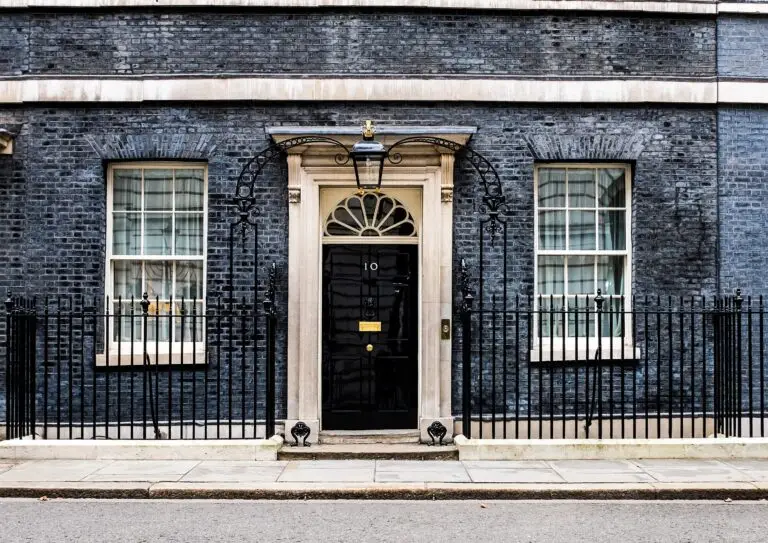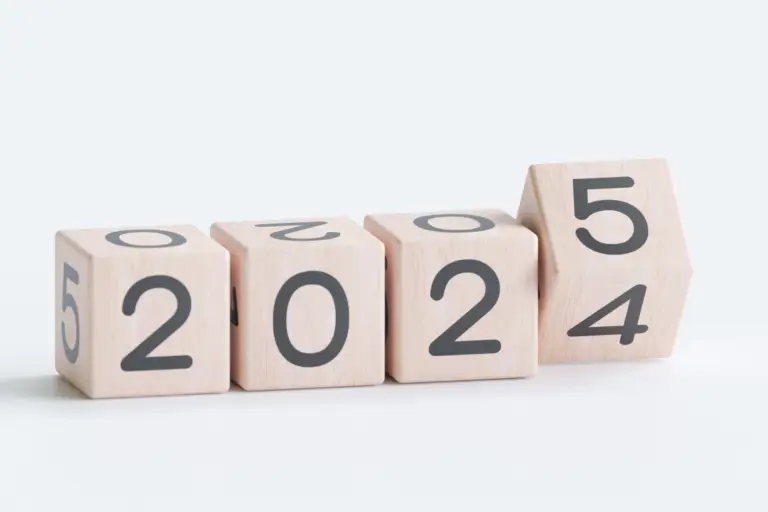A mere 20 points behind in the polls, Prime Minister Rishi Sunak took to Downing Street late this afternoon to confirm the rumours swirling around Westminster all day that he would dissolve Parliament and call an early General Election, to be held on 4th July 2024. Beneath relentless rain and to the accompaniment of Labour’s victory anthem Things Can Only Get Better, Sunak made his pitch to the British public that he – rather than Leader of the Opposition Sir Keir Starmer – should be trusted to lead the country.
His decision will mean the first July general election since 1945 – an election in which the Conservatives were defeated by Labour’s Clement Attlee. In breaking with convention, Sunak will be anticipating that the longer – and hopefully drier – summer days will work in his favour as committed party members take to the streets to canvass for a victory and turn around the polls.
If successful, Sunak will lead the Conservatives to another electoral victory – an unprecedented five in a row for the party if one counts the 2010 election, when it formed a Coalition Government with the Liberal Democrats. It goes without saying that it will be no easy task. They will take comfort from the fact that similar polls ahead of the 2010 Election (albeit a little further out from polling day) resulted in that Coalition Government. But Sunak’s Conservatives feel much further from victory than Cameron’s did.
If Labour’s message of change cuts through to translate the party’s poll lead into Parliamentary seats come Election day, then Starmer will oversee a historic win that would make him only the seventh Labour Prime Minister (compared to 31 Conservatives) and would be a first win in almost 20 years.
Sunak’s Speech
Standing behind an unmarked podium this afternoon, Sunak called for the public to choose its future, saying that they could either build on the progress of his administration or go “back to square one” with Labour.
Sunak said he had come into office to restore economic stability, describing it as the “bedrock of success”, and highlighted two major milestones in delivering this stability. Firstly, he said that the economy was growing faster than Germany, France and the United States. Secondly, he highlighted that inflation was now back to normal at 2.3%. He reiterated Conservative messaging that “the plan is working”, and that this hard-earned economic stability was only the beginning.
The major theme in Sunak’s speech was his continued emphasis on the need for a clear plan and bold action. Repeatedly he asserted that the Conservatives were the right party for this, highlighting the previous hard choices they have made to drive the country forward, reminiscing on his days as Chancellor and support for voters through the furlough and ‘eat out to help out’ schemes. And he aimed to position himself as relatively new, that the public knew him as a politician for little more than four years.
Criticising Labour, Sunak claimed that neither Starmer – nor the British public – knew what his opponents offered. He said that Starmer lacked the conviction or courage to stick to his word and asked how he could be trusted to lead the country in uncertain times. Driving this point home, Sunak asserted that the world is now more dangerous than it was at the end of the Cold War with numerous international conflicts ongoing, as well as the energy security and immigration challenges, all of which, he said, required clear, bold and decisive action to overcome.
Sunak’s speech was a clear indication of how the Conservatives will run their campaign. This will centre around the messaging that their plan is working and that they are focused on delivering continued economic successes, using the IMF’s recent positive forecast as a signal that they have turned a corner. It also showed their main attack line for Labour as having no plan, with Starmer painted as an untrustworthy pair of hands whose own indecisiveness will create uncertainty for the economy.
Starmer’s response was broadcast from a (dry) oak-panelled room, Union flags draped behind him, as he promised to take the fight to Sunak, to bring change and to build on the “first step” pledges he recently set out. Many voters will want Labour to put more meat on the bones of those promises now a date for the General Election has been set.
What Happens Next?
Parliament will be prorogued on Friday 24th May and dissolved on Thursday 30th May. With this, we can expect all political parties to launch into full Election-mode as prior commitments are cancelled or postponed to enable politicians to maximise their ability to campaign across the UK over the next six weeks.
Whilst current polling will prompt many incumbent Conservative MPs to focus solely on their Labour candidates, Labour may feel they have more licence to travel to marginal seats and key battlegrounds in the North of England and the Midlands, areas where Reform may take large chunks out of the Tory vote and with Labour buoyed by recent Mayoral wins and a successful performance in the local elections. Meanwhile, the Liberal Democrats are already heading to key battlegrounds seats in Home Counties seats to tackle the Conservatives head on in their own ‘blue wall’.
After the Election takes place on Thursday 4th July, the next Government will be formed.
- The new Parliament will sit for the first time on Tuesday 9th July new members will be sworn in.
- The State Opening of the next Parliament will take place on Wednesday 17th July.
The Pre-Election Period
Once Parliament is dissolved, the country will enter the pre-election period of ‘sensitivity’. This restricts the activity of government officials, Ministers and civil servants.
During this time, Ministers remain in post in their relevant departments but are expected to limit engagement activity and refrain from making announcements that could impact the outcome of the election. This is due to rules set out in the Ministerial Code of Conduct that state public money and resources should not be used for political campaigns. It also ensures that the values core to the civil service – namely impartiality, honesty, objectivity and integrity – are protected throughout. PLMR will provide advice on the rules of purdah.
Whilst backbench MPs are not constrained by the same codes as Ministers, they will be heavily focused on their constituencies and campaign activity and will – of course – be subject to wider campaign finance regulations.
PLMR’s insights throughout the campaign include:
- PLMR Insights paper from February – Our expert consultants delve into unique polling data, scrutinise the main challenges facing the political parties and analyse developments within key sectors expected across 2024.
- PLMR insights events:
Q&A with Prof Marc Stears, Director of the UCL Policy Lab
Tuesday 4th June 2.30-3.30pm – PLMR London Office (Church House, Westminster) and online
Prof Marc Stears is Director of the UCL Policy Lab, described by the New Statesman as the closest thing to a ‘Starmerite think tank.’ Marc will discuss his new book: England: Seven Myths That Changed a Country – and How to Set Them Straight written with Tom Baldwin, biographer of Sir Keir Starmer, and discuss what a new Labour government could look like.
Q&A with Rhys Clyne, Associate Director, Institute for Government
Wednesday 19th June, 2.30-3.30pm – PLMR London Office (Church House, Westminster) and online
Rhys works on civil service and wider government reform, including the Institute’s annual Whitehall Monitor. He will share his insights on what a transition to a new government will look like for the civil service, and the key issues on the mechanics of government facing the next Prime Minister.
Q&A with Iain Dale, Political Commentator, LBC 1.15-2.30pm
Wednesday 3rd July, Runner & riders: what to look out for in the General Election?




